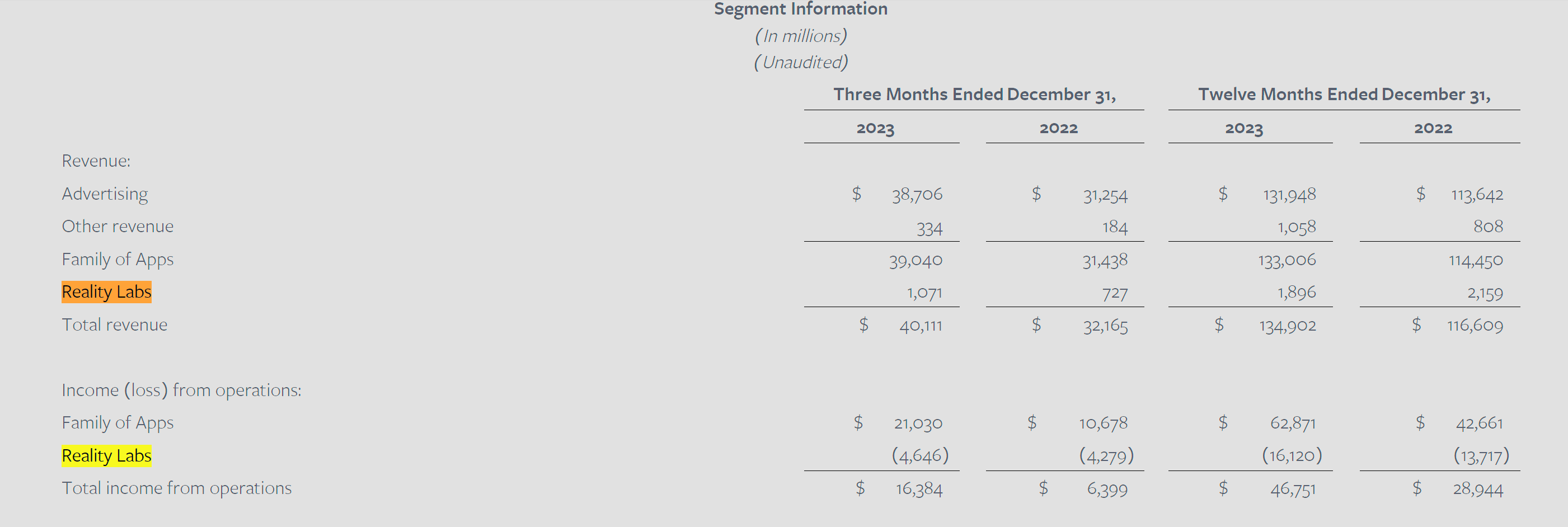What just happened? Few company divisions could have their best quarter ever, generating $1 billion in revenue, while also experiencing a record operating loss of $4.65 billion. But then Meta's Reality Labs, the VR/AR business responsible for its metaverse ambitions, knows a lot about losing money. Since the end of 2020, it has hemorrhaged more than $42 billion.

Meta's fourth-quarter earnings results showed that Reality Labs managed to pass the $1 billion revenue milestone in the fourth quarter of 2023. That's up from $727 million in the same period a year earlier, partly due to the launch of the Meta Quest 3 and Ray-Ban Meta smart glasses in October.
Meta CEO Mark Zuckerberg said on a call with analysts that Ray-Ban maker EssilorLuxottica was "planning on making more [smart glasses] than we'd both expected due to high demand." As for the Meta Quest 3, it's already the third most-popular VR headset on the Steam Hardware and Software survey.
While that sounds like good news, Reality Labs experienced the largest operating loss it's ever reported: $4.65 billion. That's even more than the $4.26 billion analysts were expecting.
Meta's financial report (click to enlarge)
Meta CFO Susan Li warned that the company expects Reality Labs' operating losses to continue, increasing "meaningfully" year-over-year due to its ongoing product developments in AR/VR and ecosystem scaling.
Meta Labs total losses for 2023 exceeded $16 billion. Since Meta first started reporting the division's financial performance back in Q4 2020, it has lost more than $42 billion.
Research firm Circana reports that sales of VR and AR headsets and glasses dropped almost 40% last year to $664 million. It'll be interesting to see how Apple's $3,500 Vision Pro headset affects the market.
Despite the billions of dollars in losses, Zuckerberg's faith that VR, AR, and mixed reality experiences represent the future of social media and computing in general is unwavering.
Zuckerberg also talked again about his desire to create an artificial general intelligence (AGI) at Meta, saying the technology was a requirement for the next generation of services.
"It's clear that we're going to need our models to be able to reason, plan, code, remember and many other cognitive abilities in order to provide the best versions of the services that we envision," Zuckerberg said.
https://www.techspot.com/news/101742-meta-vrarmetaverse-division-had-best-worst-quarter-total.html

